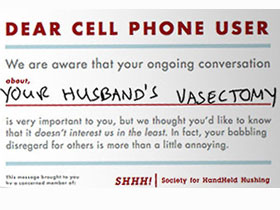Wendy Wasserstein, Chronicler of Women's Identity Crises, Dies:
Wendy Wasserstein, who spoke for a generation of smart, driven but sometimes unsatisfied women in a series of popular plays that included the long-running Pulitzer Prize winner "The Heidi Chronicles," died today after a bout with lymphoma, Lincoln Center Theater announced. She was 55.
Monday, January 30, 2006
NYFA Interactive - New York Foundation for the Arts:
For you carnivores who haven’t had the pleasure, this Japanese import costs a tongue-biting amount of money. The idea is this: cows of a special breed from Kobe, Japan are fed beer and massaged by human hands twice a day, hence their distinct mouth-melty texture. And really, why wouldn't a chilled-out, slightly drunk Japanese cow deliver better meat than a stressed-out, bullied, sober, American animal? I'll tell you why.
For you carnivores who haven’t had the pleasure, this Japanese import costs a tongue-biting amount of money. The idea is this: cows of a special breed from Kobe, Japan are fed beer and massaged by human hands twice a day, hence their distinct mouth-melty texture. And really, why wouldn't a chilled-out, slightly drunk Japanese cow deliver better meat than a stressed-out, bullied, sober, American animal? I'll tell you why.
Wednesday, January 25, 2006
iPodNN | Napster begins layoffs:
Napster has reduced its workforce by ten percent, mostly in the programming and marketing departments. According to Digital Music News, Napster employees "were told to exit immediately, and were not given prior warning."
Napster has reduced its workforce by ten percent, mostly in the programming and marketing departments. According to Digital Music News, Napster employees "were told to exit immediately, and were not given prior warning."

Alberto Gonzales spoke before law students at Georgetown today, justifying illegal, unauthorized surveilance of US citizens, but during the course of his speech the students in class did something pretty ballsy and brave. They got up from their seats and turned their backs to him. (...) additional students came into the room, wearing black cowls and carrying a simple banner, written on a sheet.
THE BEST THINGS IN LIFE ARE GIVEN TO YOU BY PUBLICISTS: HOW TO SCORE LOADS OF FREE SHIT.:
Just how Golden is this swag age? What, exactly, can one get for free? Where, precisely, are publicists willing to draw the line on ridiculous requests?
To answer those questions, I recently decided to try to live one workweek in Manhattan, Monday through Friday, without spending a single cent. Every hotel, hostel or B&B -- free. Every meal -- no charge. All of the week's parties, clubs, libations -- gratis.
Just how Golden is this swag age? What, exactly, can one get for free? Where, precisely, are publicists willing to draw the line on ridiculous requests?
To answer those questions, I recently decided to try to live one workweek in Manhattan, Monday through Friday, without spending a single cent. Every hotel, hostel or B&B -- free. Every meal -- no charge. All of the week's parties, clubs, libations -- gratis.
Tuesday, January 24, 2006
Strange New Products: Bed Light Scares Monsters Away:
It's a know fact that monsters, who like hide under kids' beds, don't like lights. This is why Mother Nature has endowed children with a defense mechanism to turn on lights when they suspect a monster has taken residence beneath their place of slumber.
The Blue Moon Night Light manages this for them by preventing monsters from moving in, and allowing boys and girls to sleep in comfort.
Powered by 14 super bright LEDs, with a life span of up to ten years, it will last long enough until kids grow up to such an age where monsters take no interest.
It's a know fact that monsters, who like hide under kids' beds, don't like lights. This is why Mother Nature has endowed children with a defense mechanism to turn on lights when they suspect a monster has taken residence beneath their place of slumber.
The Blue Moon Night Light manages this for them by preventing monsters from moving in, and allowing boys and girls to sleep in comfort.
Powered by 14 super bright LEDs, with a life span of up to ten years, it will last long enough until kids grow up to such an age where monsters take no interest.
Saturday, January 21, 2006
Boing Boing: Broadcast Flag is back, this time it covers iPods and PSPs, too:
Under the DCPA proposal, digital media technologies would be restricted to using technologies that had been certified by the FCC as being not unduly disruptive to entertainment industry business-models.
There are two things to be certain of this century:
1. Everything that can be expressed as bits will be expressed as bits
2. Bits will only get easier to copy
The entertainment companies are convinced that their businesses depend on copy-proof bits. This is ridiculous: there's no such thing, there never will be.
Governments that try to protect businesses that demand copy-proof bits are like governments that try to protect businesses on the sides of volcanoes, who demand an immediate end to business-disrupting lava.
If the current entertainment companies can't or won't adapt to a world of bits, that's too bad. Let them die, and let new businesses that thrive in the new technological reality take their place. If you can't stand the heat, get off the volcano.
Back in the mainframe days, IBM made its money by giving away computers below cost and then charging a bundle for keyboards and printers. Hitachi killed the mainframe business by introducing cheap peripherals for IBM mainframes.
Killing mainframes didn't kill computers: it made them better. IBM was forced to get into the minicomputer business, which led to the personal computer.
If computer industry complaints got the same attention as the entertainment crybabies get from lawmakers, there'd be 10,000 computers total in the world, running punchcards, with three companies making modest sums servicing them and shipping a new model every three years.
Under the DCPA proposal, digital media technologies would be restricted to using technologies that had been certified by the FCC as being not unduly disruptive to entertainment industry business-models.
There are two things to be certain of this century:
1. Everything that can be expressed as bits will be expressed as bits
2. Bits will only get easier to copy
The entertainment companies are convinced that their businesses depend on copy-proof bits. This is ridiculous: there's no such thing, there never will be.
Governments that try to protect businesses that demand copy-proof bits are like governments that try to protect businesses on the sides of volcanoes, who demand an immediate end to business-disrupting lava.
If the current entertainment companies can't or won't adapt to a world of bits, that's too bad. Let them die, and let new businesses that thrive in the new technological reality take their place. If you can't stand the heat, get off the volcano.
Back in the mainframe days, IBM made its money by giving away computers below cost and then charging a bundle for keyboards and printers. Hitachi killed the mainframe business by introducing cheap peripherals for IBM mainframes.
Killing mainframes didn't kill computers: it made them better. IBM was forced to get into the minicomputer business, which led to the personal computer.
If computer industry complaints got the same attention as the entertainment crybabies get from lawmakers, there'd be 10,000 computers total in the world, running punchcards, with three companies making modest sums servicing them and shipping a new model every three years.
Friday, January 20, 2006
The Stranger - Slog:
Your neighborhood supplier of corporate theater (the touring productions of The Graduate and The Lion King at “Broadway in Seattle at the Paramount”) changed hands recently. The infamous Clear Channel Communications got rid of its theater and concert division—which produced 12,000 theater productions, 10,000 concerts, and 600 “motor-sports events” last year—and the new company, called Live Nation, went public. Guess what happened? Clear Channel stock shot up, and Live Nation’s promptly plummeted. The lesson? There is no money in theater.
Your neighborhood supplier of corporate theater (the touring productions of The Graduate and The Lion King at “Broadway in Seattle at the Paramount”) changed hands recently. The infamous Clear Channel Communications got rid of its theater and concert division—which produced 12,000 theater productions, 10,000 concerts, and 600 “motor-sports events” last year—and the new company, called Live Nation, went public. Guess what happened? Clear Channel stock shot up, and Live Nation’s promptly plummeted. The lesson? There is no money in theater.
Thursday, January 19, 2006
Boing Boing: DoJ search requests: Google said no; Yahoo, AOL, MSN yes.:
Earlier today, I asked a Justice Department spokesperson which search engines other than Google received requests to provide search records. The answer: Yahoo, AOL, and MSN were also asked to supply search records information, and all complied. Google did not, and that is why the DoJ asked a federal judge on Wednesday to order the company to do so.
Another fact to consider as you sift through news coverage: Justice is not requesting this data in the course of a criminal investigation, but in order to defend its argument that the Child Online Protection Act is constitutionally sound.
It seems apparent that Google objected to the request not for privacy reasons, but on grounds that the request was too broad and burdensome. Privacy advocates I spoke to today, including attorney Sherwin Siy at EPIC, say while the DoJ's request would not identify individual users, the scope and nature of this request sets a troubling precedent. Today, they argue, only search strings and urls; tomorrow, perhaps, the IP addresses of all users who typed in "Osama Bin Laden."
Earlier today, I asked a Justice Department spokesperson which search engines other than Google received requests to provide search records. The answer: Yahoo, AOL, and MSN were also asked to supply search records information, and all complied. Google did not, and that is why the DoJ asked a federal judge on Wednesday to order the company to do so.
Another fact to consider as you sift through news coverage: Justice is not requesting this data in the course of a criminal investigation, but in order to defend its argument that the Child Online Protection Act is constitutionally sound.
It seems apparent that Google objected to the request not for privacy reasons, but on grounds that the request was too broad and burdensome. Privacy advocates I spoke to today, including attorney Sherwin Siy at EPIC, say while the DoJ's request would not identify individual users, the scope and nature of this request sets a troubling precedent. Today, they argue, only search strings and urls; tomorrow, perhaps, the IP addresses of all users who typed in "Osama Bin Laden."
Andrew Sullivan | Post-PC:
The scenes weren't regurgitating the warmed over prejudices of the past, like a Jay Leno monologue or Adam Sandler's appalling "The Longest Yard." They were playing with them. The writers and actors trusted the audience to be in on the joke, and to realize that the fun they were poking was sharp but not designed to wound. I'd put "South Park" firmly in the post-PC category, as well as Jon Stewart, Stephen Colbert and Dan Savage. When Colbert asked me in all seriousness on his show last Tuesday, "When did you choose to be gay?" no one believed for a second that he was anti-gay. Everyone in the twenty-something audience laughed. This is all a great development, and a generational one - a sign that the humor-free PC '90s have melted into something much funnier, much more honest, and yet also inclusive. The other key figure, I think, is Dave Chapelle, a comic genius who has somehow managed to create comedy that is ferociously close to the edge politically and in clumsier hands could be discounted as bigoted or dealing in the crudest of stereotypes.
The scenes weren't regurgitating the warmed over prejudices of the past, like a Jay Leno monologue or Adam Sandler's appalling "The Longest Yard." They were playing with them. The writers and actors trusted the audience to be in on the joke, and to realize that the fun they were poking was sharp but not designed to wound. I'd put "South Park" firmly in the post-PC category, as well as Jon Stewart, Stephen Colbert and Dan Savage. When Colbert asked me in all seriousness on his show last Tuesday, "When did you choose to be gay?" no one believed for a second that he was anti-gay. Everyone in the twenty-something audience laughed. This is all a great development, and a generational one - a sign that the humor-free PC '90s have melted into something much funnier, much more honest, and yet also inclusive. The other key figure, I think, is Dave Chapelle, a comic genius who has somehow managed to create comedy that is ferociously close to the edge politically and in clumsier hands could be discounted as bigoted or dealing in the crudest of stereotypes.

So, my bank enrolled me in this "thank you points" program wherein I receive one point for every $2 spent with my signature or for every $3 spent with a PIN. In a month or two, I've racked up some 848 points (not sure if they're counting online bill paying -- otherwise it seems like I must have started with some kind of bonus number of points).
Anyway, to prevent scamming, the program specifies that if if you buy something and return it, the points you received will be subtracted. However, my experience with debit purchases has been that when you return something, you get your refund in cash. I can't see how the bank would really know about it. So couldn't I rack up points by buying things with debit and returning them?
For instance, last month I bought a $150 dress at Banana Republic and then returned it (I was going to wear it to my birthday party but then I took it home and couldn't get it to work with a strapless bra), and was somewhat surprised to receive $150 in cash. I could buy and return a $150 dress, um ... every day. I could buy the dresses three at once and then return them. Now, I have to imagine that the store would have some limit on the amount of money they'd hand someone in cash as a refund, maybe a few hundred dollars. So, three dresses it is. That's $450 and 150 points -- per day.
More.
Joe Rogan (of Fear Factor) talking at incredible length about DMT, death experiences and psychedellic drugs he has taken.
Wednesday, January 18, 2006
La Queen Sucia: Cold Turkey Staying Down:
Fast forward nine years. I am a staff writer at the Boston Globe. Insanely busy, stressed. Too poor for a car. Fingers frozen from waiting for the bus on Roslindale Avenue, then the train at Forest Hills. I am not 19 anymore, teaching 25 aerobics classes a week. And the pounds are creeping on. I used to weigh 118, back when I lectured my metalhead roomie. Now I hover near 145, and can't figure out what went wrong. The first time Christian, my boyfriend, calls me a fat whore I rush in my sadness to the nearest Dominican restaurant and order two takeout containers of stewed chicken with red beans and salad. I stop at Dunkin Donuts for extra support and get six crullers. I go back to my drafty, under-furnished apartment, sit on the floor, watch a rerun of Home Improvement and shovel it in. Then, food in stomach, I decide to despise myself for my failure to remain thin, for failure to win the approval of an unpleasable man, and I go to the bathroom and lift the toilet lid. I grab my toothbrush. I avoid eye contact with my reflection, bend over, and gag myself. The dinner comes up like nothing. Just a couple of bloodshot eyes and a thick mouth. Nothing I can't take care of with some Crest and dental floss. I catch my reflection as I walk out. "What?" I ask. "It's just this once. I'm not bulimic. I'm not like her."
Fast forward nine years. I am a staff writer at the Boston Globe. Insanely busy, stressed. Too poor for a car. Fingers frozen from waiting for the bus on Roslindale Avenue, then the train at Forest Hills. I am not 19 anymore, teaching 25 aerobics classes a week. And the pounds are creeping on. I used to weigh 118, back when I lectured my metalhead roomie. Now I hover near 145, and can't figure out what went wrong. The first time Christian, my boyfriend, calls me a fat whore I rush in my sadness to the nearest Dominican restaurant and order two takeout containers of stewed chicken with red beans and salad. I stop at Dunkin Donuts for extra support and get six crullers. I go back to my drafty, under-furnished apartment, sit on the floor, watch a rerun of Home Improvement and shovel it in. Then, food in stomach, I decide to despise myself for my failure to remain thin, for failure to win the approval of an unpleasable man, and I go to the bathroom and lift the toilet lid. I grab my toothbrush. I avoid eye contact with my reflection, bend over, and gag myself. The dinner comes up like nothing. Just a couple of bloodshot eyes and a thick mouth. Nothing I can't take care of with some Crest and dental floss. I catch my reflection as I walk out. "What?" I ask. "It's just this once. I'm not bulimic. I'm not like her."
Tuesday, January 17, 2006
Monkey Disaster:
A Conversation With Charlie (Age 5) That Illustrates A Fundamental Reason For Having Or At Least Hanging Out With Children
(we start each day by looking at the weather forecast by KOMO-TV weather guy Steve Pool in the local paper)
HIM: What does Steve Pool have to say today?
ME: Ach! Cloudy and rainy! Again!
HIM: What's wrong?
ME: Oh, it's just been so rainy lately. And it's going to just keep raining. And I want some sunny days here.
HIM: But Dad, it's okay. Maybe there are just a lot of flowers that need to grow. Think of the flowers, Dad.
ME: Oh. Okay.
HIM: If the weather isn't what you want, don't worry, it will change one day and be the weather you want.
ME: Okay, Charlie. Thank you.
A Conversation With Charlie (Age 5) That Illustrates A Fundamental Reason For Having Or At Least Hanging Out With Children
(we start each day by looking at the weather forecast by KOMO-TV weather guy Steve Pool in the local paper)
HIM: What does Steve Pool have to say today?
ME: Ach! Cloudy and rainy! Again!
HIM: What's wrong?
ME: Oh, it's just been so rainy lately. And it's going to just keep raining. And I want some sunny days here.
HIM: But Dad, it's okay. Maybe there are just a lot of flowers that need to grow. Think of the flowers, Dad.
ME: Oh. Okay.
HIM: If the weather isn't what you want, don't worry, it will change one day and be the weather you want.
ME: Okay, Charlie. Thank you.
Herbert Bergel: Herbert Matthews Goes to the Sierra
While vacationing in Havana in 1959, aging New York Times journalist Herbert Matthews received an invitation to visit the jungle hideout of Fidel Castro’s guerrilla army. After undertaking a dangerous journey to the Sierra Maestra mountains, Matthews published a series of articles that highlighted the abuses of the pre-revolutionary Cuban regime and transformed Castro into an international figure. As Cuba quickly became a focal point of the Cold War, however, Matthews’ sympathy for Castro’s cause became a point of controversy at The New York Times. Within a few years of first interviewing Castro, Matthews ended his four-decade career at the newspaper. Herbert Matthews Goes to the Sierra is a 30-minute musical reinterpretation of these events, featuring parts for five actors and a score featuring bass guitar, clarinet, keyboard and drums.
While vacationing in Havana in 1959, aging New York Times journalist Herbert Matthews received an invitation to visit the jungle hideout of Fidel Castro’s guerrilla army. After undertaking a dangerous journey to the Sierra Maestra mountains, Matthews published a series of articles that highlighted the abuses of the pre-revolutionary Cuban regime and transformed Castro into an international figure. As Cuba quickly became a focal point of the Cold War, however, Matthews’ sympathy for Castro’s cause became a point of controversy at The New York Times. Within a few years of first interviewing Castro, Matthews ended his four-decade career at the newspaper. Herbert Matthews Goes to the Sierra is a 30-minute musical reinterpretation of these events, featuring parts for five actors and a score featuring bass guitar, clarinet, keyboard and drums.
King's Fiery Speech Rarely Heard:
It is the time of year when students are taught about the Rev. Martin Luther King Jr.'s 1963 "I Have a Dream" speech, so passionately delivered that his call for freedom changed U.S. history. Once heard, it is impossible to forget.
But many students won't get to hear it -- and most who do will hear only snippets, educators and historians said. And that, they said, is affecting the legacy of the preeminent civil rights leader, whose life will be honored tomorrow with an annual federal holiday.
"It lessens the historical saliency of King for younger kids," said Robert Brown, assistant dean of undergraduate education at Emory University in Atlanta who specializes in African American politics. "It is one thing to read King and another to see him. Hearing him is so much more powerful than reading it."
H. Patrick Swygert, president of Howard University, heard King on the Mall in Washington at the end of a day of marching and speeches in 1963. Tired listeners were respectful at the beginning, he said, but began to stir at the rhythm of King's words, the intensity of his voice and the power of the message, which was not just a description of the condition of blacks in America but a vision of something better.
"It is doubly sad for people today who do not hear the speech," Swygert said. "It certainly was one of the great moments of American oratory. But young people today don't often hear the message of possibility, and the second half of the speech was all about possibility."
All of King's speeches and papers are owned by his family, which has gone to court several times since the 1990s to protect its copyright; King obtained rights to his most famous speech a month after he gave it. Now, those who want to hear or use the speech in its entirety must buy a copy sanctioned by the King family, which receives the proceeds.
It is the time of year when students are taught about the Rev. Martin Luther King Jr.'s 1963 "I Have a Dream" speech, so passionately delivered that his call for freedom changed U.S. history. Once heard, it is impossible to forget.
But many students won't get to hear it -- and most who do will hear only snippets, educators and historians said. And that, they said, is affecting the legacy of the preeminent civil rights leader, whose life will be honored tomorrow with an annual federal holiday.
"It lessens the historical saliency of King for younger kids," said Robert Brown, assistant dean of undergraduate education at Emory University in Atlanta who specializes in African American politics. "It is one thing to read King and another to see him. Hearing him is so much more powerful than reading it."
H. Patrick Swygert, president of Howard University, heard King on the Mall in Washington at the end of a day of marching and speeches in 1963. Tired listeners were respectful at the beginning, he said, but began to stir at the rhythm of King's words, the intensity of his voice and the power of the message, which was not just a description of the condition of blacks in America but a vision of something better.
"It is doubly sad for people today who do not hear the speech," Swygert said. "It certainly was one of the great moments of American oratory. But young people today don't often hear the message of possibility, and the second half of the speech was all about possibility."
All of King's speeches and papers are owned by his family, which has gone to court several times since the 1990s to protect its copyright; King obtained rights to his most famous speech a month after he gave it. Now, those who want to hear or use the speech in its entirety must buy a copy sanctioned by the King family, which receives the proceeds.
The Stranger - Theater - Feature - On Stage:
Lord, spare us from awful art like Global SeXXX-ism: un-wrapped. The baroquely indulgent title is enough to curdle the stomach; the show itself is so bad, it almost defies description. And get this: The Conciliation Project got a $13,000 grant from the city's Neighborhood Matching Fund program to mount productions for local schools, which will only confirm the youngsters' suspicions that theater, like, totally blows.
Unlike finger-wagging parables by Baraka or Brecht, SeXXX-ism doesn't bother with characters or stories. Instead, this "ritual play" cuts straight to the politics with cartoonish clichés that insult our intelligence. If this is theater's response to social ills, it truly is a dead art form.
Exhibit A: Actors put signs around their necks that read "co-dependency," "addiction," or "abuse" and stumble around the stage, embodying addiction or co-dependency. Blech. B: The strip-club tableau, wherein three men attach long, inflatable phalli to their pants and hoot at a couple of automaton-woman pole dancers, who chant about their inner numbness and "calloused" vaginas.
Lord, spare us from awful art like Global SeXXX-ism: un-wrapped. The baroquely indulgent title is enough to curdle the stomach; the show itself is so bad, it almost defies description. And get this: The Conciliation Project got a $13,000 grant from the city's Neighborhood Matching Fund program to mount productions for local schools, which will only confirm the youngsters' suspicions that theater, like, totally blows.
Unlike finger-wagging parables by Baraka or Brecht, SeXXX-ism doesn't bother with characters or stories. Instead, this "ritual play" cuts straight to the politics with cartoonish clichés that insult our intelligence. If this is theater's response to social ills, it truly is a dead art form.
Exhibit A: Actors put signs around their necks that read "co-dependency," "addiction," or "abuse" and stumble around the stage, embodying addiction or co-dependency. Blech. B: The strip-club tableau, wherein three men attach long, inflatable phalli to their pants and hoot at a couple of automaton-woman pole dancers, who chant about their inner numbness and "calloused" vaginas.
The Bushwick Hotel:
Upon being alerted by our Mr. Creighton about the new subway restrictions going into effect today, i.e. no leg spreading, I should like to recount a particularly disturbing incident on the uptown 6 train a couple of years ago.
It wasn't crowded. I was seated. The man across from me was wearing rather abbreviated jogging shorts, but as it was warm and he looked the running type, I thought nothing of it. Nothing, until I noticed that one of his testicles was clearly visible. I went back to my paper, wondering if he'd notice. Looked up again and there was the testicle, clear as day. At this point I made eye contact with him. I realize this was foolish, but I thought that maybe ful eye contact from a stranger on the train would instill a kind of "check yourself before you wreck yourself" mentality and this, combined with the air conditioning stroking his exposed scrotal skin might make him tuck his ball in his shorts, cross his legs, and red-facedly get off at the next stop. I smiled at him helpfully. He smiled back. I went back to my paper.
Upon being alerted by our Mr. Creighton about the new subway restrictions going into effect today, i.e. no leg spreading, I should like to recount a particularly disturbing incident on the uptown 6 train a couple of years ago.
It wasn't crowded. I was seated. The man across from me was wearing rather abbreviated jogging shorts, but as it was warm and he looked the running type, I thought nothing of it. Nothing, until I noticed that one of his testicles was clearly visible. I went back to my paper, wondering if he'd notice. Looked up again and there was the testicle, clear as day. At this point I made eye contact with him. I realize this was foolish, but I thought that maybe ful eye contact from a stranger on the train would instill a kind of "check yourself before you wreck yourself" mentality and this, combined with the air conditioning stroking his exposed scrotal skin might make him tuck his ball in his shorts, cross his legs, and red-facedly get off at the next stop. I smiled at him helpfully. He smiled back. I went back to my paper.
Culturebot.org: A Sober Attempt:
The rest was a polluted montage of booze and schmooze. I remember getting into a fight with some Libertarians at The Monocle, Nina holding my hair while I puked in The Caucus Room and then debating Marxist theory with some of the waiters at Bistro Bis. We finished it off with some VSG’s at the Capital Grill and then I think we had a nightcap across the street at the Watergate. (Woman! I am no damn bowflex exercise machine. Gotta get my hands on some Vitamin E.)
The rest was a polluted montage of booze and schmooze. I remember getting into a fight with some Libertarians at The Monocle, Nina holding my hair while I puked in The Caucus Room and then debating Marxist theory with some of the waiters at Bistro Bis. We finished it off with some VSG’s at the Capital Grill and then I think we had a nightcap across the street at the Watergate. (Woman! I am no damn bowflex exercise machine. Gotta get my hands on some Vitamin E.)
Monday, January 16, 2006
Life After Katrina :
The day after we returned to Gainesville—Dec. 29—I drove nine hours, alone, to New Orleans. The main reason for the trip was an old tradition: Every year since graduating from Tulane, no matter where in the world we happen to find ourselves, my friend Les and I have met in New Orleans around the New Year. Les and his wife, Lee, have lived abroad for many years (presently in the Netherlands) and hadn't visited the city since the hurricane. That night, when I met them at the Carousel Bar in the French Quarter, they seemed subdued.
"This city is toast," Les said as we settled onto our stools.
He and Lee had spent much of the day at an old Uptown haunt, the Mayfair Bar, where they'd encountered a self-proclaimed mold specialist. This man was a dire pessimist. In terrifying detail he described how lethal mold spores luxuriate in the mucus membrane for five years or so, then you get sick and die. Anybody who had entered a moldy house without a certain kind of gas mask—not the $40 kind, but the $60 kind—was doomed. Mark my words, the man had said: Within five years, the population of New Orleans will be decimated by killer mold.
"But Les," I said. "I spent days in my moldy house without any kind of gas mask at all. I mean, it was too damn hot to wear a gas mask."
He and Lee looked at each other.
"You're doomed," said Les.
Lee nodded. "According to this guy anyway."
"But … I feel fine."
My friend Les lit a cigarette and splayed his hand ("five years") then tactfully changed the subject. The Carousel Bar rotated, creaking, while we sat chatting.
The day after we returned to Gainesville—Dec. 29—I drove nine hours, alone, to New Orleans. The main reason for the trip was an old tradition: Every year since graduating from Tulane, no matter where in the world we happen to find ourselves, my friend Les and I have met in New Orleans around the New Year. Les and his wife, Lee, have lived abroad for many years (presently in the Netherlands) and hadn't visited the city since the hurricane. That night, when I met them at the Carousel Bar in the French Quarter, they seemed subdued.
"This city is toast," Les said as we settled onto our stools.
He and Lee had spent much of the day at an old Uptown haunt, the Mayfair Bar, where they'd encountered a self-proclaimed mold specialist. This man was a dire pessimist. In terrifying detail he described how lethal mold spores luxuriate in the mucus membrane for five years or so, then you get sick and die. Anybody who had entered a moldy house without a certain kind of gas mask—not the $40 kind, but the $60 kind—was doomed. Mark my words, the man had said: Within five years, the population of New Orleans will be decimated by killer mold.
"But Les," I said. "I spent days in my moldy house without any kind of gas mask at all. I mean, it was too damn hot to wear a gas mask."
He and Lee looked at each other.
"You're doomed," said Les.
Lee nodded. "According to this guy anyway."
"But … I feel fine."
My friend Les lit a cigarette and splayed his hand ("five years") then tactfully changed the subject. The Carousel Bar rotated, creaking, while we sat chatting.
Michael Dell Should Eat His Words, Apple Chief Suggests - New York Times:
In 1997, shortly after Mr. Jobs returned to Apple, the company he helped start in 1976, Dell's founder and chairman, Michael S. Dell, was asked at a technology conference what might be done to fix Apple, then deeply troubled financially.
"What would I do?" Mr. Dell said to an audience of several thousand information technology managers. "I'd shut it down and give the money back to the shareholders."
On Friday, apparently savoring the moment, Mr. Jobs sent a brief e-mail message to Apple employees, which read: "Team, it turned out that Michael Dell wasn't perfect at predicting the future. Based on today's stock market close, Apple is worth more than Dell. Stocks go up and down, and things may be different tomorrow, but I thought it was worth a moment of reflection today. Steve."
In 1997, shortly after Mr. Jobs returned to Apple, the company he helped start in 1976, Dell's founder and chairman, Michael S. Dell, was asked at a technology conference what might be done to fix Apple, then deeply troubled financially.
"What would I do?" Mr. Dell said to an audience of several thousand information technology managers. "I'd shut it down and give the money back to the shareholders."
On Friday, apparently savoring the moment, Mr. Jobs sent a brief e-mail message to Apple employees, which read: "Team, it turned out that Michael Dell wasn't perfect at predicting the future. Based on today's stock market close, Apple is worth more than Dell. Stocks go up and down, and things may be different tomorrow, but I thought it was worth a moment of reflection today. Steve."
Michael Dell Should Eat His Words, Apple Chief Suggests - New York Times:
In 1997, shortly after Mr. Jobs returned to Apple, the company he helped start in 1976, Dell's founder and chairman, Michael S. Dell, was asked at a technology conference what might be done to fix Apple, then deeply troubled financially.
"What would I do?" Mr. Dell said to an audience of several thousand information technology managers. "I'd shut it down and give the money back to the shareholders."
On Friday, apparently savoring the moment, Mr. Jobs sent a brief e-mail message to Apple employees, which read: "Team, it turned out that Michael Dell wasn't perfect at predicting the future. Based on today's stock market close, Apple is worth more than Dell. Stocks go up and down, and things may be different tomorrow, but I thought it was worth a moment of reflection today. Steve."
In 1997, shortly after Mr. Jobs returned to Apple, the company he helped start in 1976, Dell's founder and chairman, Michael S. Dell, was asked at a technology conference what might be done to fix Apple, then deeply troubled financially.
"What would I do?" Mr. Dell said to an audience of several thousand information technology managers. "I'd shut it down and give the money back to the shareholders."
On Friday, apparently savoring the moment, Mr. Jobs sent a brief e-mail message to Apple employees, which read: "Team, it turned out that Michael Dell wasn't perfect at predicting the future. Based on today's stock market close, Apple is worth more than Dell. Stocks go up and down, and things may be different tomorrow, but I thought it was worth a moment of reflection today. Steve."
Sunday, January 15, 2006
Walken for President in 2008 - Official Website:

"Our great country is in a terrible downward spiral. We're outsourcing jobs, bankrupting social security, and losing lives at war. We need to focus on what's important-- paying attention to our children, our citizens, our future. We need to think about improving our failing educational system, making better use of our resources, and helping to promote a stable, safe, and tolerant global society. It's time to be smart about our politics. It's time to get America back on track."

"Our great country is in a terrible downward spiral. We're outsourcing jobs, bankrupting social security, and losing lives at war. We need to focus on what's important-- paying attention to our children, our citizens, our future. We need to think about improving our failing educational system, making better use of our resources, and helping to promote a stable, safe, and tolerant global society. It's time to be smart about our politics. It's time to get America back on track."
Chelsea Peretti: Rain:
The GHOSTWRITER Cast Reunion Show
GHOSTWRITER was about a group of kids in Park Slope who solved mysteries with the help of a computer-icon-looking ghost named GHOSTWRITER. GHOSTWRITER could not speak but could read words near and around the people and places that pertained to the crime/mystery at hand. In a sense GHOSTWRITER could read and write but not "see." If GHOSTWRITER were helping the gang look for me he would spell out words like MALIBU DINER and UNISEX MULTI-RACIAL SALON.

The GHOSTWRITER Cast Reunion Show
GHOSTWRITER was about a group of kids in Park Slope who solved mysteries with the help of a computer-icon-looking ghost named GHOSTWRITER. GHOSTWRITER could not speak but could read words near and around the people and places that pertained to the crime/mystery at hand. In a sense GHOSTWRITER could read and write but not "see." If GHOSTWRITER were helping the gang look for me he would spell out words like MALIBU DINER and UNISEX MULTI-RACIAL SALON.

Friday, January 13, 2006
FRIDAY THE 13TH LETTERS: Veracity of 'Cyclops Kitten' Photo Questioned:
A number of readers have written in to say a photo purporting to show a one-eyed kitten distributed through AP is some sort of hoax. AP's most recent story on the "cyclops kitten" says it went to extraordinary lengths to ensure that the photo is real. Still, questions persist. Here are a few.
A number of readers have written in to say a photo purporting to show a one-eyed kitten distributed through AP is some sort of hoax. AP's most recent story on the "cyclops kitten" says it went to extraordinary lengths to ensure that the photo is real. Still, questions persist. Here are a few.
From an email:
I am Korean-American, and my worst nightmare is to make a show about Korea called Songs of the Dragons Flying to Heaven. Songs of the Dragons Flying to Heaven presents my confused, disturbing, and frequently offensive take on my cultural background in all of its romanticized, half-informed, and brutal honesty. The show is also about being in love and trying to be happy when you're so fucked-up that all you want to do is destroy everything in your path. But most of all, Songs of the Dragons Flying to Heaven is about white people.
The show starts with a video of me getting hit in the face repeatedly (for real) and then launches into a weird pseudo-Korean world navigated by a Korean-American, who is kind of like a contestant wandering through different stages of an identity-politics video game. Then, out of nowhere, there is a white couple having a relationship drama. The Koreans and whites alternate scenes, infecting each other thematically and occasionally coming into direct conflict, until eventually the whites "eat" the play and we never see the Koreans again. A good chunk of the play is spoken in Korean and Japanese (see if you can tell the difference!) and there's some Korean dancing as well.
I am Korean-American, and my worst nightmare is to make a show about Korea called Songs of the Dragons Flying to Heaven. Songs of the Dragons Flying to Heaven presents my confused, disturbing, and frequently offensive take on my cultural background in all of its romanticized, half-informed, and brutal honesty. The show is also about being in love and trying to be happy when you're so fucked-up that all you want to do is destroy everything in your path. But most of all, Songs of the Dragons Flying to Heaven is about white people.
The show starts with a video of me getting hit in the face repeatedly (for real) and then launches into a weird pseudo-Korean world navigated by a Korean-American, who is kind of like a contestant wandering through different stages of an identity-politics video game. Then, out of nowhere, there is a white couple having a relationship drama. The Koreans and whites alternate scenes, infecting each other thematically and occasionally coming into direct conflict, until eventually the whites "eat" the play and we never see the Koreans again. A good chunk of the play is spoken in Korean and Japanese (see if you can tell the difference!) and there's some Korean dancing as well.
Picking Up the Pieces - How James Frey flunked rehab, and why his fakery matters. By Seth Mnookin:
Based on all the evidence, it seems Frey's weird, macho fear of seeing himself as a "victim" led him to fabricate a life that was painful and extreme enough so as to explain the sadness and despair he felt. Instead of a crack-binging street fighter, ostracized by both his peers and society, the Smoking Gun investigation indicates Frey was more likely a lonely, confused boy who may or may not have needed ear surgery as a child and felt distant from his parents and alienated from his peers. He drank too much, did some drugs, got nailed for a couple of DUIs and ended up, at age 23, in one of the country's most prestigious drug-and-alcohol treatment centers.
Based on all the evidence, it seems Frey's weird, macho fear of seeing himself as a "victim" led him to fabricate a life that was painful and extreme enough so as to explain the sadness and despair he felt. Instead of a crack-binging street fighter, ostracized by both his peers and society, the Smoking Gun investigation indicates Frey was more likely a lonely, confused boy who may or may not have needed ear surgery as a child and felt distant from his parents and alienated from his peers. He drank too much, did some drugs, got nailed for a couple of DUIs and ended up, at age 23, in one of the country's most prestigious drug-and-alcohol treatment centers.
Wednesday, January 11, 2006
Gothamist: New Year's Resolution... Saving:
According to CNN, New York City is indeed the most expensive city in the U.S. And Salary.com states that "Salaries in New York City are 17% higher than the national average, but the cost of living is 94% higher. This makes NYC possibly the hardest place to get your bank account into the black. "
So, our first piece of advice is: Try not to beat yourself up about having less money saved than your counterparts in other cities. It really is harder in NYC. And we hate it when we read articles about saving money that say stupid things like "Just stop buying designer shoes and cappucinos every day!" because we don't do that in the first place.
According to CNN, New York City is indeed the most expensive city in the U.S. And Salary.com states that "Salaries in New York City are 17% higher than the national average, but the cost of living is 94% higher. This makes NYC possibly the hardest place to get your bank account into the black. "
So, our first piece of advice is: Try not to beat yourself up about having less money saved than your counterparts in other cities. It really is harder in NYC. And we hate it when we read articles about saving money that say stupid things like "Just stop buying designer shoes and cappucinos every day!" because we don't do that in the first place.
Tuesday, January 10, 2006
BREITBART.COM - Howard Stern Debuts on Satellite Radio:
Stern also introduced George Takei as his new on-air personality. Takei, who played Mr. Sulu on "Star Trek" and who last year publicly said he is gay, will serve as announcer. After the first week, he will record segments for the show but will not be in the studio.
"The revolution has begun" in new radio, Takei said Monday.
Stern also introduced George Takei as his new on-air personality. Takei, who played Mr. Sulu on "Star Trek" and who last year publicly said he is gay, will serve as announcer. After the first week, he will record segments for the show but will not be in the studio.
"The revolution has begun" in new radio, Takei said Monday.
Monday, January 09, 2006
Alito Goes a Long Way: But he's still no John Roberts:
Roberts spoke without notes on his opening day and rocked. Alito speaks from prepared comments and somehow appears to be working off a first draft. Roberts came off as simply too "nice" to have written all those blistering, hateful memos in the '80s. Alito delivers his two "jokes" as though he's docking someone's allowance. It doesn't help, either, that his facial expression throughout the afternoon is one of ferocious, determined impassivity. Unlike Roberts, who'd mastered the boyish "I'm listening" head tilt or the impish "Hey, you're funny!" acknowledgment of every senatorial joke, Alito keeps his eyes fixed somewhere on the middle distance; like while all this is happening around him, he is really very busy recalling a rather violent segment about mating lemurs on Animal Planet.
Roberts spoke without notes on his opening day and rocked. Alito speaks from prepared comments and somehow appears to be working off a first draft. Roberts came off as simply too "nice" to have written all those blistering, hateful memos in the '80s. Alito delivers his two "jokes" as though he's docking someone's allowance. It doesn't help, either, that his facial expression throughout the afternoon is one of ferocious, determined impassivity. Unlike Roberts, who'd mastered the boyish "I'm listening" head tilt or the impish "Hey, you're funny!" acknowledgment of every senatorial joke, Alito keeps his eyes fixed somewhere on the middle distance; like while all this is happening around him, he is really very busy recalling a rather violent segment about mating lemurs on Animal Planet.
Sunday, January 08, 2006
The Unmasking of JT Leroy: In Public, He's a She - New York Times:
It has been one of the most bizarre literary mysteries in recent memory: Who, exactly, is the novelist JT Leroy? An answer, at long last, is taking shape.
Mr. Leroy's story was harrowing in its details and uplifting in its arc. He was a young truck-stop prostitute who had escaped rural West Virginia for the dismal life of a homeless San Francisco drug addict. Rescued as a young teenager by a couple named Laura Albert and Geoffrey Knoop and treated by a psychologist, he was able to turn his terrible youth into a thriving career as a writer. JT Leroy has published three critically acclaimed works of fiction noted for their stark portrayal of child prostitution and drug use.
Along the way Mr. Leroy gained the friendship and trust of celebrities and noted writers, who supported his career financially and offered him emotional support when he declared that he was infected with H.I.V. Sales were good, and his books were published around the world. Shy and reclusive, Mr. Leroy, now 25, appeared in public often disguised beneath a wig and sunglasses.
But the young man in the wig and sunglasses, it turns out, is not a man at all. The public role of JT Leroy is played by Savannah Knoop, Geoffrey Knoop's half-sister, who is in her mid-20's.
It has been one of the most bizarre literary mysteries in recent memory: Who, exactly, is the novelist JT Leroy? An answer, at long last, is taking shape.
Mr. Leroy's story was harrowing in its details and uplifting in its arc. He was a young truck-stop prostitute who had escaped rural West Virginia for the dismal life of a homeless San Francisco drug addict. Rescued as a young teenager by a couple named Laura Albert and Geoffrey Knoop and treated by a psychologist, he was able to turn his terrible youth into a thriving career as a writer. JT Leroy has published three critically acclaimed works of fiction noted for their stark portrayal of child prostitution and drug use.
Along the way Mr. Leroy gained the friendship and trust of celebrities and noted writers, who supported his career financially and offered him emotional support when he declared that he was infected with H.I.V. Sales were good, and his books were published around the world. Shy and reclusive, Mr. Leroy, now 25, appeared in public often disguised beneath a wig and sunglasses.
But the young man in the wig and sunglasses, it turns out, is not a man at all. The public role of JT Leroy is played by Savannah Knoop, Geoffrey Knoop's half-sister, who is in her mid-20's.
Nearly 100, LSD's Father Ponders His 'Problem Child' - New York Times:
His work on ergot produced several important drugs, including a compound still in use to prevent hemorrhaging after childbirth. But it was the 25th compound that he synthesized, lysergic acid diethylamide, that was to have the greatest impact. When he first created it in 1938, the drug yielded no significant pharmacological results. But when his work on ergot was completed, he decided to go back to LSD-25, hoping that improved tests could detect the stimulating effect on the body's circulatory system that he had expected from it. It was as he was synthesizing the drug on a Friday afternoon in April 1943 that he first experienced the altered state of consciousness for which it became famous. "Immediately, I recognized it as the same experience I had had as a child," he said. "I didn't know what caused it, but I knew that it was important."
When he returned to his lab the next Monday, he tried to identify the source of his experience, believing first that it had come from the fumes of a chloroform-like solvent he had been using. Inhaling the fumes produced no effect, though, and he realized he must have somehow ingested a trace of LSD. "LSD spoke to me," Mr. Hofmann said with an amused, animated smile. "He came to me and said, 'You must find me.' He told me, 'Don't give me to the pharmacologist, he won't find anything.' "
His work on ergot produced several important drugs, including a compound still in use to prevent hemorrhaging after childbirth. But it was the 25th compound that he synthesized, lysergic acid diethylamide, that was to have the greatest impact. When he first created it in 1938, the drug yielded no significant pharmacological results. But when his work on ergot was completed, he decided to go back to LSD-25, hoping that improved tests could detect the stimulating effect on the body's circulatory system that he had expected from it. It was as he was synthesizing the drug on a Friday afternoon in April 1943 that he first experienced the altered state of consciousness for which it became famous. "Immediately, I recognized it as the same experience I had had as a child," he said. "I didn't know what caused it, but I knew that it was important."
When he returned to his lab the next Monday, he tried to identify the source of his experience, believing first that it had come from the fumes of a chloroform-like solvent he had been using. Inhaling the fumes produced no effect, though, and he realized he must have somehow ingested a trace of LSD. "LSD spoke to me," Mr. Hofmann said with an amused, animated smile. "He came to me and said, 'You must find me.' He told me, 'Don't give me to the pharmacologist, he won't find anything.' "
Saturday, January 07, 2006
Report Rebuts Bush on Spying:
A report by Congress's research arm concluded yesterday that the administration's justification for the warrantless eavesdropping authorized by President Bush conflicts with existing law and hinges on weak legal arguments.
The Congressional Research Service's report rebuts the central assertions made recently by Bush and Attorney General Alberto R. Gonzales about the president's authority to order secret intercepts of telephone and e-mail exchanges between people inside the United States and their contacts abroad.
A report by Congress's research arm concluded yesterday that the administration's justification for the warrantless eavesdropping authorized by President Bush conflicts with existing law and hinges on weak legal arguments.
The Congressional Research Service's report rebuts the central assertions made recently by Bush and Attorney General Alberto R. Gonzales about the president's authority to order secret intercepts of telephone and e-mail exchanges between people inside the United States and their contacts abroad.
Friday, January 06, 2006
Thursday, January 05, 2006
Behind the magic curtain:
On Tuesday a chief executive will stand up and announce something, and within minutes it will be scrutinised across the web and on stockbrokers' computers. It will be in newspapers. They'll talk about it for months.
That chief executive is Steve Jobs, and I know why that speech makes an impact. To a casual observer it is just a guy in a black shirt and jeans talking about some new technology products. But it is in fact an incredibly complex and sophisticated blend of sales pitch, product demonstration and corporate cheerleading, with a dash of religious revival thrown in for good measure. It represents weeks of work, precise orchestration and intense pressure for the scores of people who collectively make up the "man behind the curtain". I know, because I've been there, first as part of the preparation team and later on stage with Steve.
On Tuesday a chief executive will stand up and announce something, and within minutes it will be scrutinised across the web and on stockbrokers' computers. It will be in newspapers. They'll talk about it for months.
That chief executive is Steve Jobs, and I know why that speech makes an impact. To a casual observer it is just a guy in a black shirt and jeans talking about some new technology products. But it is in fact an incredibly complex and sophisticated blend of sales pitch, product demonstration and corporate cheerleading, with a dash of religious revival thrown in for good measure. It represents weeks of work, precise orchestration and intense pressure for the scores of people who collectively make up the "man behind the curtain". I know, because I've been there, first as part of the preparation team and later on stage with Steve.
IKEA: The Swedish Feeding Trough - International - SPIEGEL ONLINE - News:
More than food-scroungers, though, IKEA workers fear lazy parents. Around 150 three- to 10-year-olds are deposited daily at the Hamburg-Schnelsen store's play area -- a complimentary offer to allow mom and dad to wander in peace through the showrooms. But many people misuse the service as a free babysitting service. Sometimes moms just set their loved ones down among the colorful balls, with the nursery girl watching -- and hurries to the hairstylist or the tennis court. The desperate store announcements asking the mother to please pick up her screeching child then go unheeded.
More than food-scroungers, though, IKEA workers fear lazy parents. Around 150 three- to 10-year-olds are deposited daily at the Hamburg-Schnelsen store's play area -- a complimentary offer to allow mom and dad to wander in peace through the showrooms. But many people misuse the service as a free babysitting service. Sometimes moms just set their loved ones down among the colorful balls, with the nursery girl watching -- and hurries to the hairstylist or the tennis court. The desperate store announcements asking the mother to please pick up her screeching child then go unheeded.
Wednesday, January 04, 2006
FORTUNE: Congress botched digital TV - Jan. 4, 2006:
But managing this transition -- which will render about 70 million TV sets obsolete -- will be not be easy. Nothing is, when the federal government gets involved. Indeed, Congress will soon have to revisit this issue, to clean up this mess it has created.
This fixed switch date allows consumers, electronics manufacturers, broadcasters, cable and satellite operators to plan for the transition. All have a lot at stake.
But for consumers with one of those 70 million sets -- many of whom are likely to be poor, elderly or uneducated, being forcibly switched from one technology to another will be a nightmare.
People are supposed to apply for the vouchers during a three-month window in 2008, and use them within three months. But there probably won't be enough vouchers to go around, and no one really knows how much converter boxes will cost. Disadvantaged people are most likely to be left behind in the scramble.
But managing this transition -- which will render about 70 million TV sets obsolete -- will be not be easy. Nothing is, when the federal government gets involved. Indeed, Congress will soon have to revisit this issue, to clean up this mess it has created.
This fixed switch date allows consumers, electronics manufacturers, broadcasters, cable and satellite operators to plan for the transition. All have a lot at stake.
But for consumers with one of those 70 million sets -- many of whom are likely to be poor, elderly or uneducated, being forcibly switched from one technology to another will be a nightmare.
People are supposed to apply for the vouchers during a three-month window in 2008, and use them within three months. But there probably won't be enough vouchers to go around, and no one really knows how much converter boxes will cost. Disadvantaged people are most likely to be left behind in the scramble.
The nightmare scenario is that people who depend on free, over-the-air TV for news and entertainment will lose their access, or have to pay more for it, so that the rest of us can get faster service on our Blackberries and ESPN on our cell phones.
Tiny worms survive shuttle crash | News.blog | CNET News.com:
Miniscule research worms kept in special aluminum canisters aboard the doomed space shuttle Columbia survived after plunging from the spacecraft and hitting the ground with an impact 2,295 times the force of Earth's gravity, according to a research paper in December's issue of the journal Astrobiology.
Miniscule research worms kept in special aluminum canisters aboard the doomed space shuttle Columbia survived after plunging from the spacecraft and hitting the ground with an impact 2,295 times the force of Earth's gravity, according to a research paper in December's issue of the journal Astrobiology.
Tuesday, January 03, 2006
"The End of Hunting?" by Christina Larson:
If Americans don't hunt in the numbers that they used to, hunting goods stores aren't in danger of going out of business just yet. Hunting and fishing remain major national pastimes: In 2001, 13 million Americans headed out to hunt and 34 million to fish. The total number of "sportsmen"--men and women who hunt or fish--is 38 million today, nearly one in five Americans.
But while that's a crowd, it's a shrinking one. Over the past two decades, the percentage of Americans who hunt or fish has tumbled from 26 to 18 percent; the absolute number of sportsmen has fallen from 50 million to 38 million. The decline is related to the ripple effects of suburbanization, the gradual century-long movement of Americans from farms to cities and suburbs. Thirty years ago, many suburban residents still had relatives who lived in the country, relatives who would welcome them back to the farm to hunt on fall weekends. Now those relatives are largely gone--or suburban dwellers themselves. Today, more than two out of three sportsmen live in metropolitan areas, where their children grow up less familiar with firearms, removed from daily contact with blood and dirt, and often less comfortable with the pursuit of game as sport. Just as successive generations of immigrant families lose touch with the language and customs of the old country, the descendants of rural America simply don't have the same strong cultural attachment to the land and to hunting.
If Americans don't hunt in the numbers that they used to, hunting goods stores aren't in danger of going out of business just yet. Hunting and fishing remain major national pastimes: In 2001, 13 million Americans headed out to hunt and 34 million to fish. The total number of "sportsmen"--men and women who hunt or fish--is 38 million today, nearly one in five Americans.
But while that's a crowd, it's a shrinking one. Over the past two decades, the percentage of Americans who hunt or fish has tumbled from 26 to 18 percent; the absolute number of sportsmen has fallen from 50 million to 38 million. The decline is related to the ripple effects of suburbanization, the gradual century-long movement of Americans from farms to cities and suburbs. Thirty years ago, many suburban residents still had relatives who lived in the country, relatives who would welcome them back to the farm to hunt on fall weekends. Now those relatives are largely gone--or suburban dwellers themselves. Today, more than two out of three sportsmen live in metropolitan areas, where their children grow up less familiar with firearms, removed from daily contact with blood and dirt, and often less comfortable with the pursuit of game as sport. Just as successive generations of immigrant families lose touch with the language and customs of the old country, the descendants of rural America simply don't have the same strong cultural attachment to the land and to hunting.
village voice > nyclife > Urban Resolutions by Urban Resolutions:
Isaac Mizrahi
Having studied under venerable designers like Perry Ellis and Calvin Klein, Mizrahi has done everything from designing clothes to writing comic books. He currently hosts the Isaac show on the Style Network.
Your resolutions in 2005: To lose 10 pounds.
Did you follow them? I dieted with much rigor.
Results? I lost the 10 pounds, but I gained them back.
Resolutions for 2006: To accept myself 10 pounds fatter. I know that won't happen, so I'll probably lose 10 pounds and gain them back again.
Isaac Mizrahi
Having studied under venerable designers like Perry Ellis and Calvin Klein, Mizrahi has done everything from designing clothes to writing comic books. He currently hosts the Isaac show on the Style Network.
Your resolutions in 2005: To lose 10 pounds.
Did you follow them? I dieted with much rigor.
Results? I lost the 10 pounds, but I gained them back.
Resolutions for 2006: To accept myself 10 pounds fatter. I know that won't happen, so I'll probably lose 10 pounds and gain them back again.
Standard Plumbing
Plumbing supply places, like auto parts stores, have long
counters with bar stools for the customers. When I came in, the
man behind the counter was telling a story about the time he
and his friends had decided to celebrate getting home from
Vietnam and had bought a lot of Scotch and given one bottle to
a wino who drank half of it all at once and dropped dead.
Then the man, with Walter stitched on his shirt, asked what he
could do for me and I told him I had come to buy a toilet, the
cheapest, most basic toilet they had. He wanted to know if I
was putting it in one of my apartments or something and I said
no, it was for my own house and I was, oddly enough, buying
a toilet for the first time because we were installing indoor
plumbing. The other houses I'd lived in had always come with
toilets and I'd never given much thought to choosing one,
though today I'd kind of decided I wanted bone, not white. So,
in the process of getting the bowl and the tank and the seat and
some pipes and gaskets from the warehouse, we got to talking
about our outhouses and he allowed as how the one he had in
Florida when he was kid in the fifties hadn't been all that
bad, except for the bugs and sometimes a snake, and we both
agreed that there are times out there when you see things from
an unusual vantage, for instance: that view of the night sky in
winter is unparalleled.
Marie Harris
Plumbing supply places, like auto parts stores, have long
counters with bar stools for the customers. When I came in, the
man behind the counter was telling a story about the time he
and his friends had decided to celebrate getting home from
Vietnam and had bought a lot of Scotch and given one bottle to
a wino who drank half of it all at once and dropped dead.
Then the man, with Walter stitched on his shirt, asked what he
could do for me and I told him I had come to buy a toilet, the
cheapest, most basic toilet they had. He wanted to know if I
was putting it in one of my apartments or something and I said
no, it was for my own house and I was, oddly enough, buying
a toilet for the first time because we were installing indoor
plumbing. The other houses I'd lived in had always come with
toilets and I'd never given much thought to choosing one,
though today I'd kind of decided I wanted bone, not white. So,
in the process of getting the bowl and the tank and the seat and
some pipes and gaskets from the warehouse, we got to talking
about our outhouses and he allowed as how the one he had in
Florida when he was kid in the fifties hadn't been all that
bad, except for the bugs and sometimes a snake, and we both
agreed that there are times out there when you see things from
an unusual vantage, for instance: that view of the night sky in
winter is unparalleled.
Marie Harris
A Blogger Creates a Blogger for a Trip Back to 2004 - New York Times:
Melanie is in love with something that weighs only a few ounces: the BlackBerry hand-held computer that accompanies her everywhere. Melanie grips it and gazes at it incessantly. The book never explains how she avoids walking into walls.
The BlackBerry in "Dog Days" is more than just a shamelessly promoted product. It is a symbol, too. It represents the glib, facile, cynical, artificial and calculating values amid which Melanie finds herself as she wags the dog in Washington as a 28-year-old minor political operative working on the 2004 Democratic presidential campaign. The author sincerely thanks the Kerry-Edwards team, which did not need enemies with her for a friend.
Melanie is in love with something that weighs only a few ounces: the BlackBerry hand-held computer that accompanies her everywhere. Melanie grips it and gazes at it incessantly. The book never explains how she avoids walking into walls.
The BlackBerry in "Dog Days" is more than just a shamelessly promoted product. It is a symbol, too. It represents the glib, facile, cynical, artificial and calculating values amid which Melanie finds herself as she wags the dog in Washington as a 28-year-old minor political operative working on the 2004 Democratic presidential campaign. The author sincerely thanks the Kerry-Edwards team, which did not need enemies with her for a friend.
Subscribe to:
Comments (Atom)





























